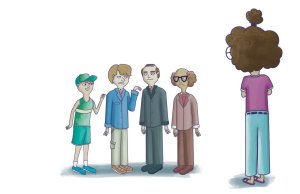The Future of AI in Destination Marketing According to AI
January 31, 2023
This article was written in part by a publicly available AI text generation model.
Like all industries, destination marketing and tourism are already being enhanced by Artificial Intelligence (AI). While still in the early stages, it is already changing how destinations connect with travelers, such as chatbots for customer service and AI-powered virtual reality for booking experiences.
AI is rapidly changing the way we live and work in the travel and tourism industry. As technology changes, so too will its use in travel marketing and tourism. This blog post will discuss how AI is already being used in destination marketing and explore potential opportunities for future advancements.
What is AI?
Get ready to have your mind blown, folks! While not a new technology, AI is the soup du jour in the world of computer science. It’s centered around creating machines that can think and react like humans—and even learn and adapt on their own.
You may have heard of its cool cousin, machine learning, which can be used to learn about a topic without explicit programming or guidance from humans. Machine learning has a long history, with Arthur Samuel coining the phrase “machine learning” in 1959 when he made the first instance of it in a checkers program. With this form of AI, computers can learn from massive amounts of data and make predictions about new situations based on past experiences. It’s like giving a computer a memory, but way cooler!
AI can be used for all sorts of things like predicting weather patterns, translating languages, playing strategic games like chess, and even walking robots through unknown terrain without falling off cliffs. And it’s not just limited to one specific task—at a high level, there are two types of AI:narrow (or weak) AI and general (or strong) AI. Both have the ability to perform any intellectual task that a human can. It’s no surprise that AI has the potential to revolutionize destination marketing, and other industries like healthcare, finance, transportation and manufacturing.
Generative AI
What we are most excited about in the DMO space is generative AI. Generative AI is able to generate new and unique outputs, such as text, images, or speech. This is in contrast to discriminative AI, which makes predictions or classifies inputs based on previous examples.
Generative AI models are typically trained on a large dataset and use various techniques such as deep learning, Generative Adversarial Networks (GANs), Variational Autoencoders (VAE), and others. These models can then generate new outputs that are similar in style or content to the examples in the initial training dataset. For example, a generative AI model trained on images of animals could generate new images of animals that it has never seen before.
Generative AI models are used in a variety of applications, such as natural language processing, image and video synthesis, music composition, and drug discovery. They can also be used for data augmentation, anomaly detection and for creating realistic simulations for various industries.
How DMOs will use AI
It’s no secret that the way we market destinations has changed significantly over the past decade.The future of marketing is now clearly AI-centric. Just like machine learning has already transformed the way we search for new content and information online, it is also set to profoundly change how DMOs engage travelers.Some of the ways in which AI is being used to improve marketing include:
Personalization
AI-powered systems can analyze visitor and customer data and preferences to create personalized marketing messages and offers.
Predictive Analytics
AI can help predict which visitors are most likely to visit or churn and target marketing efforts accordingly.
Automation
AI can automate repetitive tasks such as data entry and analysis, freeing up marketers to focus on more strategic work.
Chatbots
AI-powered chatbots can provide 24/7 customer service and support, allowing a virtual concierge 24/7 to engage with customers in real-time (and this is not your 2022 chatbot!).
Content Creation
AI can be used to generate written content, such as product descriptions and social media posts, saving time and effort for marketers.
Ad Targeting
AI can analyze user data and behavior to target more relevant ads to specific audiences.
Voice Search Optimization
AI-powered systems can optimize websites and apps for voice search, allowing brands to reach customers who prefer to use voice commands.
Influencer Marketing
AI can assist in identifying and selecting the right influencers for a brand and create personalized content for them.
Overall, AI is helping marketers to work more efficiently, reach their audiences more effectively, and personalize their messaging to individual consumers. As AI technologies continue to advance, we can expect to see even more ways in which they will be used to improve marketing efforts.
How travelers will use AI
AI is the ultimate travel buddy! It’s here to help you plan your trip, find the best deals and even point you in the direction of the coolest things to do. Some of the ways in which AI is being used by travelers include:
Personalized Travel Recommendations
AI-powered systems can analyze a traveler’s preferences and past travel history to make personalized travel recommendations.
Virtual Travel Assistants
AI-powered chatbots and virtual assistants can assist with tasks such as booking flights and hotels, making restaurant reservations, and providing information about local attractions.
Language Translation
AI-powered language translation apps can help travelers communicate with locals when traveling abroad.
Smart Packing
AI-powered apps can help travelers create a packing list based on the destination, weather, and length of the trip.
Smart Travel Itinerary
AI can assist travelers in creating a personalized itinerary based on their preferences and budget.
Intelligent Search
AI-powered search engines can analyze a traveler’s preferences and make personalized suggestions for flights, hotels, and activities.
Virtual Reality
AI-powered virtual reality technology can allow travelers to preview destinations and activities before they book.
Intelligent Travel Safety
AI can assist travelers in identifying potential security risks, alerting them to potential dangers and providing them with personalized safety recommendations
How the rest of the tourism industry will use AI
AI is not just for DMOs and travelers for example, hoteliers can also benefit from AI by identifying how many people are going to visit during peak seasons, who they are, and what they might want (like maybe a room with an ocean view).
This information can lead to better decisions about how much inventory needs to be added during these times, saving money or even increasing ADR if all the rooms are booked up! AI shines at predicting traffic patterns and correlating weather conditions with visitor behaviors. It can tell you if more people will come out to an event on a sunny day or if they’re more likely to stay indoors during a storm.
The AI Revolution is Already Happening
Overall, AI is helping travelers to plan and book their trips more efficiently, make more informed decisions, and personalize their travel experiences. It is also creating more dynamic ways for DMOs to reach travelers, and giving tourism and hospitality businesses tools to provide better service. As AI technologies continue to advance, we can expect to see even more ways in which they will be used to improve the tourism industry.



